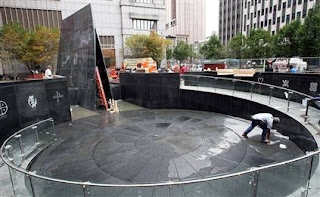
This year I will periodically invite outside folks as a guest blogger. I saw Remica Bingham on the campus of Howard University last year. She and poet Tara Betts both presented papers on Lucille Clifton. What appealed to me about their papers were the ease and fluidity with which they delivered them. They didn't strike me as straight-laced academics. I had a haunch they they knew something about poetry, in a way only a practicioner would know. They weren't just speaking from an esoteric space. The subjects of their papers was their mentor-teacher. They probably chipped their teeth as poets reading Lucille Clifton or studying with her as fellows of Cave Canem.
After reading so many blogs last year, I thought I'd borrow a few ideas from Blog deity E. Ethelbert Miller and Tayari Jones. (You can google either of them to check out their lively blogs.)
I have done brief interviews on here previously but with the guest bloggers I thought I'd give them a blank sheet (or screen) to speak to us about something that they are intimately familiar with. Without further ado here's Remica Bingham:
There are very few poets in this country that can survive without a day job and I am certainly one of them. My job, however, does afford me the opportunity—the time and space—to write more often than not, and I am grateful that this is the case. Currently, I’m at Norfolk State University, an HBCU in Norfolk, Virginia. My proper title is Writing Competency Coordinator for Institutional Effectiveness and Assessment, which basically means I handle a big exam. I’m an administrator, and the move from teaching has been a strange one, but I have gotten a sidelong glimpse into the administrative life. I’m hoping it will give me some sharp insight when I am finally able to return to the classroom.
Though I was a bit leery about engaging in a 9 to 5, five days a week (and a few Saturdays each semester), it has been a beautiful thing as far as my writing is concerned. I have gotten more done here than I think I would have been able to if my primary work were in a classroom setting. You cannot leave the classroom; the students--their thoughts and personal lives--stay with you constantly. You worry over them, think on them, even write about them long after they’re gone and the day is over. As I don’t have a set group of students that I work with on a continual basis, this is not the case with my current position.
As a poet, I lean towards the narrative more often than not. I am interested in the minute details that create the bigger pictures of our lives. Clarity is something I strive for in all of my work, and plainness, in the sense that I want every line, every word, every comma to be used in the best way and as sharply as possible. As a reader, I want to come to the page and find some foundation, some grounding, in the things that make up our real lives. So, as a poet, I am intensely interested in everyday occurrences that help define who we are and how we are able to survive in the world. The only ideas I have about craft that I am married to are: to always use the essential phrase, never the incidental one and revise, revise, revise. Also, I think it’s important for young writers (not necessarily in chronologically, but in practice as well) to know is that all good writers should read ten times more than they write. For every ten poems you write, you should have read at least 100.
Making a living as a poet is almost an oxymoron, but some do. If I could change one thing about the process it would be that the business world that governs over the publication of our writing would be more like, or at least more appreciative of, the actual process of completing a poem. You don’t expect artists, or those who profess to love art, to be cutthroat or so preoccupied with numbers that they miss the importance of what is being said and how. Poetry isn’t about the numbers. If it were, we’d all be failing miserably.



